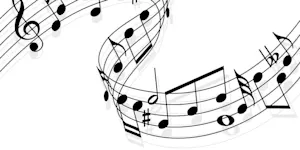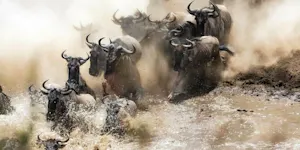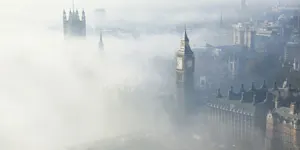What Makes This Word Tick
"Berserk" is one of those delightful words that evokes vivid imagery and a sense of wild abandon. It's the linguistic equivalent of someone tearing through a department store during a clearance sale. The word conveys a state of frenzy or uncontrolled rage, often used to describe hectic and tumultuous scenarios.
If Berserk Were a Person…
Picture a lively fellow with wild hair who is always in motion, perhaps with an untamed beard or brightly colored clothes. This person would be spontaneous and unpredictable, possessing a contagious energy that could make a quiet tea party feel like a rock concert.
How This Word Has Changed Over Time
Originally, "berserk" comes from the Old Norse "berserkr," referring to Norse warriors known for fighting with extraordinary ferocity, often without armor. Over time, it evolved from describing these warriors to generally indicating any wild or unrestrained behavior.
Old Sayings and Proverbs That Use Berserk
While no traditional proverbs use "berserk," modern sayings like "going berserk" have become synonymous with losing control. It’s a phrase that runs parallel to other colorful expressions like "blowing a fuse."
Surprising Facts About Berserk
The term "berserker" originally described legendary Norse warriors who were said to fight in a trance-like fury. Some scholars suggest that these warriors ingested substances to enhance their battle frenzy—imagine an ancient version of an energy drink!
Out and About With This Word
You might hear "berserk" used at sports events when fans go wild over a winning goal or perhaps during retail environments like Black Friday shopping sprees. It's a versatile word, perfect for describing any scene of chaos and excitement.
Pop Culture Moments Where Berserk Was Used
The word finds its way into pop culture through titles of TV episodes and movies. For instance, "The Incredible Hulk" character is often described as going berserk whenever his alter ego takes over—a perfect fit for this explosive superhero.
The Word in Literature
In literature, "berserk" might be used to describe pivotal and climactic moments where emotions run high. Its vivid nature fits well in action-packed novels or thrillers where characters reach their boiling point.
Moments in History with Berserk
The notorious 1960s era was a "berserk" period of social change and revolutionary thinking! From Woodstock to civil rights protests, the spirit of going against the norm was alive, akin to the untamed vigor suggested by "berserk."
This Word Around the World
While the concept of "berserk" translates into similar terms worldwide, the frenetic energy it embodies beautifully matches cultural festivities like the Brazilian Carnival, where the joyful chaos is almost palpable.
Where Does It Come From?
The origin of "berserk" is steeped in Norse mythology, combining "ber," meaning bear, and "serkr," meaning shirt, suggesting warriors clad in bear skins who were in a ferocious trance-like state during battle.
How People Misuse This Word
Sometimes people use "berserk" to describe something mildly chaotic. However, its true intensity is reserved for scenes of sheer pandemonium, far beyond a mere busy day at the office.
Words It’s Often Confused With
Rampage: Both imply chaos and energy, but "rampage" often involves violent action.
Frenzy: This suggests wild, frantic behavior but can convey excitement in non-aggressive settings.
Crazy: It's a more general term for irrationality and doesn't capture the specific energy of berserk.
Additional Synonyms and Antonyms
Synonyms include hysterical, unrestrained, and furious. Antonyms would be calm, tranquil, and composed—words describing the antithesis of going berserk.
Want to Try It Out in a Sentence?
"After months of pent-up cabin fever, the townsfolk went berserk at the spring festival, turning the quiet square into a whirl of music, laughter, and unrestrained dancing."
















